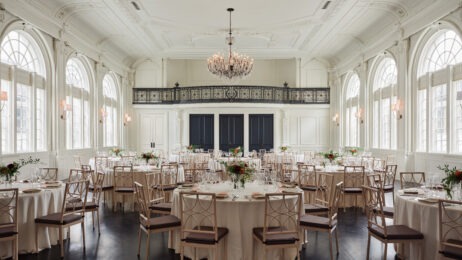The hospitality industry is booming, and retailers are taking notice. Brands known for being luxury watchmakers, specialists in home decor and pushers of simple apparel are all trying their hand in the hospitality industry.
As consumer’s expectations for quality products and service continue to heighten, so is their demand for an engaging experience. Event planners know this world well, as what’s expected of them from attendees is no different.
Since their conception, hotels have sought to create a personalized experience for their guests. Brand loyalty is generally a thing of the past, as consumers are now looking for an engagement rather than another fancy product to buy. Several retailers have picked up on this, pushing them to take a dip (for others, a dive) in the hospitality industry, where experience is everything. Established brands—which many of these are—that have a loyal fanbase will find no difficulty in attracting guests. They already have a head start.
Domestic Companies
After unveiling its 90,000-square-foot gallery last year in New York City’s Meatpacking District, home furnishing company Restoration Hardware revealed it will be opening its first hotel, RH Guesthouse, in Manhattan this summer, just around the corner from the gallery. The project will be a five-story, 14-room boutique hotel and restaurant, which will also serve as a showroom for the company’s products.
After nearly two years of construction, Detroit-based luxury watchmaker Shinola opened its doors Jan. 2. The 129-room building is located within the city’s historic Woodward Avenue shopping district and is within walking distance of Ford Field, Comerica Park and Little Caesars Arena. Once home to the Singer Sewing Company, this property includes three event spaces that accommodate groups ranging from 12 to 200.
West Elm, founded in Brooklyn in 2002, plans to open a line of hotels in 2020. It does not plan on a subtle transition into the industry, as it has already scheduled six openings, with the first planned for late this year. Guests will be sleeping in and sitting in West Elm products throughout their stay (a reality the company will likely capitalize on).
Foreign Firms
The first Muji Hotel opened in Shenzhen, China, last January, followed by another in Beijing. This month, there are plans for Muji to open its third hotel, with 79 guest rooms, in Tokyo’s Ginza District on April 4. The location will be home to the largest Muji flagship store, which will be on the first six floors of the 10-story property. The hotel will be located on a portion of the sixth floor and the top four floors. The simple concept and design of the property follows Muji’s “antigorgeous, anticheap” philosophy, as the brand calls it.
IKEA, which opened its first hotel in 2016, is arguably one of the pioneers of the hotel-to-hospitality trend. The Swedish retailer opened its doors in Almhult, Sweden, where IKEA was founded (and where you can also visit the IKEA museum and IKEA outlet store). It has been rumored that IKEA has its hospitality eyes set on expanding outside of Sweden—to New Haven, Conn.
That’s just the retail industry. Plenty of other brands in the food and fashion industry are making moves into the hospitality sector. Japanese-Peruvian fusion restaurant Nobu has multiple hotels around the globe, its first being Nobu Hotel in Caesars Palace in Las Vegas. Armani has properties in Dubai and Milan; Versace in Dubai and the Gold Coast of Australia.
Since consumer’s expectations of what a brand should be are constantly in flux, retailers must make the appropriate changes to remain in step with those expectations. The line that separates retail from hospitality has been getting increasingly blurry over the years, but this may not be such a bad thing. Consumers, retailers and people generally are always searching for the next big thing, and retailers just might be onto something.




